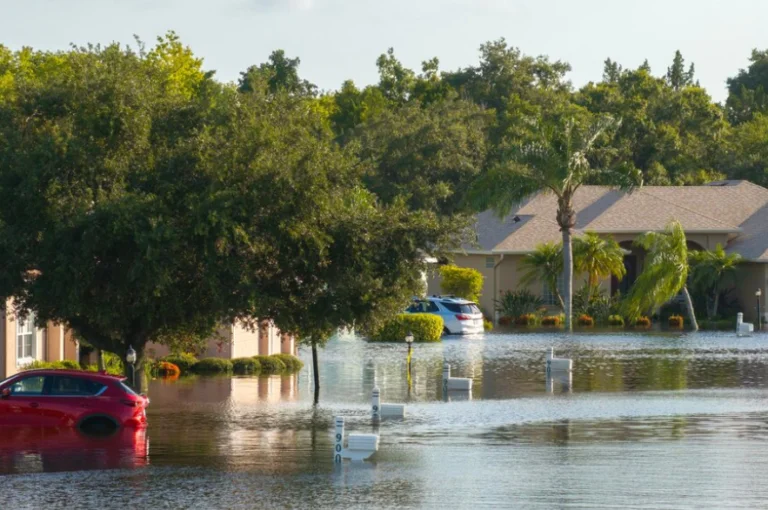iQOO Z10x 5G (Ultramarine, 6GB RAM, 128GB Storage) | 6500 mAh Large Capacity Battery | Dimensity 7300 Processor | Military-Grade Certified Durability
(as of April 25, 2025 21:26 GMT +05:30 - More infoProduct prices and availability are accurate as of the date/time indicated and are subject to change. Any price and availability information displayed on [relevant Amazon Site(s), as applicable] at the time of purchase will apply to the purchase of this product.)Florida's location makes it a prime target for tropical storms and hurricanes, which frequently cause significant flooding. A vital protection against the financial destruction these natural events wreak for households is hurricane flood insurance. Although most basic homeowners' insurance plans cover wind damage from storms, they seldom ever cover damage connected to floods. Offering coverage for building damage and losses to personal items brought on by rising water, flood insurance closes this gap.
For those living in high-risk flood zones in Florida, private insurance companies or the National Flood Insurance Program (NFIP) provide absolutely vital hurricane flood insurance plans. Since flood events sometimes strike unexpected locations, even those outside of approved flood zones should give this protection some thought. Without enough insurance, the expenses of repairs—from flooded flooring to damaged electrical systems—can be staggering.
How Water Damage Is Addressed by Home Insurance
Though there are restrictions, homeowners' insurance often covers some kinds of water damage. For instance, usually covered is water damage and home insurance resulting from accidental events like a burst pipe or an overflowing washing machine. Not included are damages resulting from rising floodwaters, poor maintenance, or slow leaks, though. Here is where flood insurance becomes absolutely essential, particularly in areas like Florida prone to hurricanes.
Evaluating your insurance needs depends on knowing the difference between water damage and floods. Insurance plans define flooding as water from outside sources—that is, from storms, overflowing rivers, or severe rain. To guarantee complete protection, this kind of damage calls for a separate flood insurance coverage.
Assessing Risks and Determining Coverage Needs
Finding the right degree of coverage for your house depends on first assessing its flood risk. Flood maps created by the Federal Emergency Management Agency (FEMA) group regions according to their flood risk. High-risk zone properties could have required flood insurance requirements, especially for those with mortgages guaranteed by the government.
Beyond location, give your house's building characteristics some thought. Water damage especially prone to basements and crawl areas is Moreover, knowing the possible expenses of replacements and repairs can help you decide on coverage limitations. Structural damage, electrical system repairs, furniture, appliance replacement, and other item replacement should all be included under comprehensive storm flood insurance.
Filing a Claim After Hurricane Flooding
Immediately following a hurricane, you must quickly file a flood insurance claim. Start by carefully noting the damage and photographing it. To start the claims procedure, get in touch with your insurance company; have your policy number and pertinent information easily at hand. To figure the payout, an adjuster will evaluate the damage.
One should be aware that claims for flood insurance behave differently from those for regular homeowners' insurance. The policy clearly states the coverage limits and exclusions; so, acquaint yourself with these terms beforehand. Furthermore included in many flood insurance contracts is a waiting period—usually thirty days—from the purchase date before coverage starts. Plan such that protection gaps are avoided.
Preparing Your Home for Hurricane Flood Risks
By means of proactive actions, insurance claims can be lowered and flood-related damage minimized. Look first for weaknesses on your property. Seal foundation cracks, upgrade important systems like HVAC units, and install battery backup sump pumps. In places prone to hurricanes, think about reinforced roofing and storm shutters to resist strong winds and stop water incursion.
Equally crucial is creating an emergency plan. This covers organizing important records, building a family inventory, and developing a communication plan. Apart from improving safety, preparedness simplifies the claims process should floods take place.
The Role of Flood Insurance in Recovery
Rebuilding from flooding brought on by a hurricane can be a protracted and costly process. Homeowners without flood insurance could have to pay the difficult out-of-pocket financing for replacements and repairs. With a complete flood insurance policy, the financial load can be much lessened, allowing faster recovery and lessening of stress.
Flood insurance guarantees that following a disaster you are not left unprotected. It offers the required money to fix your house, replace broken items, and bring normalcy back. During hurricane season, Florida citizens especially value this piece of mind.
Conclusion
Having the appropriate insurance coverage is not a luxury; rather, it is a need in Florida, where floods and storms are regular hazards. Essential elements of a complete home safety strategy include knowledge of water damage coverage and hurricane flood insurance florida, Protecting your possessions and house calls for rigorous risk assessment, proactive planning, and appropriate insurance coverage catered to your need.
Flood Insurance HQ is your reliable friend in terms of maintaining your piece of mind; it guides you through the complexity of storm flood insurance and helps you protect what most importantly counts.







0 Comments